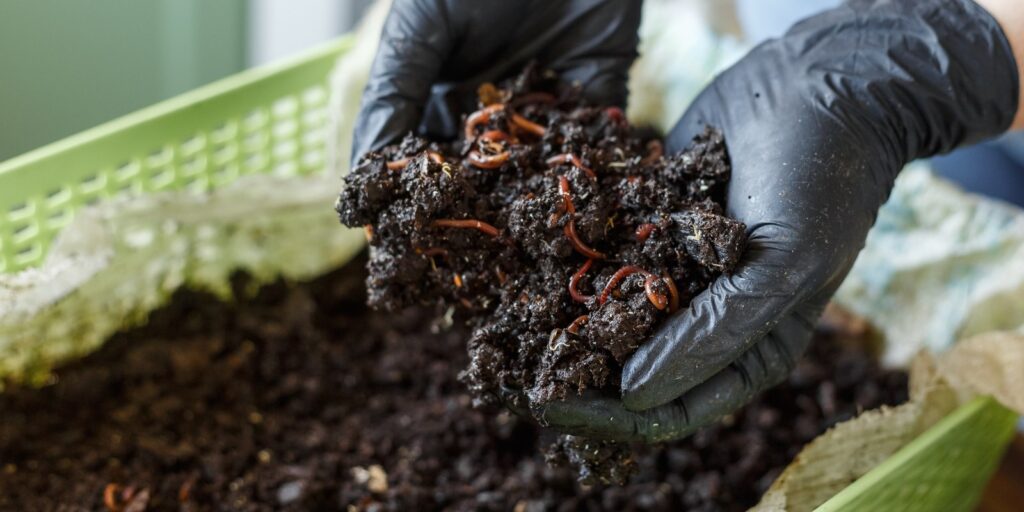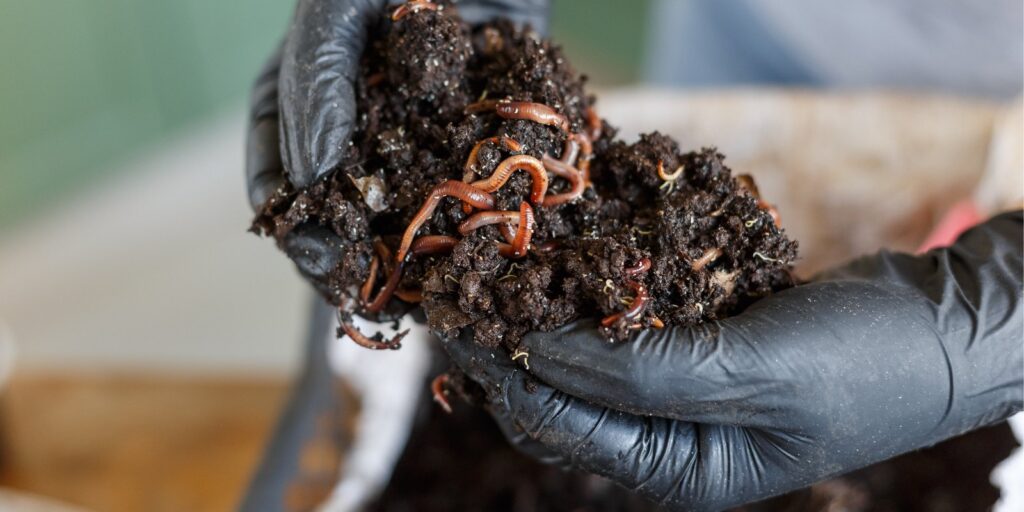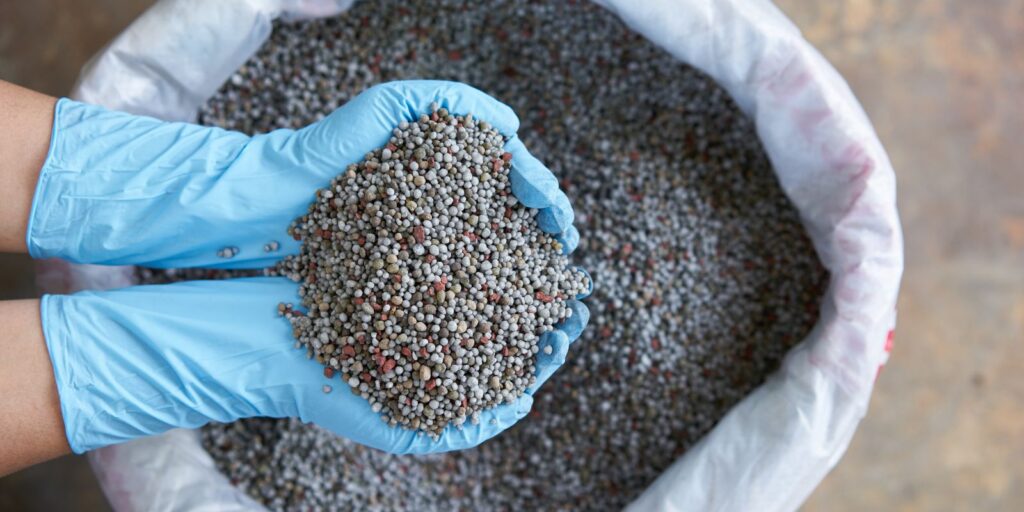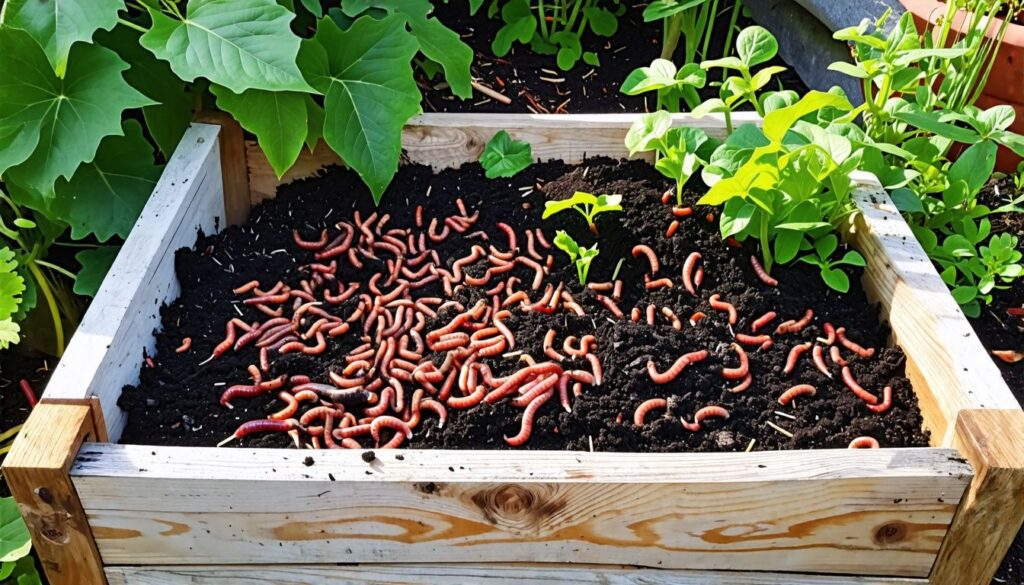
Are you struggling to grow healthy, productive plants and wondering whether your fertilization strategy might be the problem? We’ve been there, too, and realized the real issue could lie in our choice of fertilizer.
In fact, we found vermicompost—a nutrient-rich organic substance produced by earthworms—can provide a more sustainable and effective alternative to chemical fertilizers. Dive into this article to learn why making the switch could give your garden a serious growth spurt! Lets talk about Vermicompost vs Chemical Fertilizers.
Benefits of Vermicompost over Chemical Fertilizers

Vermicompost offers numerous advantages over traditional chemical fertilizers.
Organic and sustainable
Shifting from chemical fertilizers to vermicompost not only benefits the health of our crops but also contributes to sustainable farming practices. Produced through earthworm activities, vermicompost is completely organic and rich in nutrients.
It helps us maintain soil fertility without causing any harm to the environment. Processing kitchen waste and other organic matter into valuable compost reduces landfill buildup, making this a strategic component of waste management as well.
The practice of vermicomposting promotes a circular economy, enabling us to reuse resources efficiently while supporting biodiversity in our soils. This shift towards organic gardening with vermicompost results in healthier plant growth and offers a practical contribution towards a more sustainable future for our planet.
Higher nutrient content
Vermicompost surpasses chemical fertilizers in terms of nutrient content. Rich in crucial growth components like nitrogen and phosphorus, it provides the nourishment plants require to thrive.
The nutrients found in vermicompost are diverse, including a wide array of micronutrients often deficient in chemically treated soils.
Unlike regular fertilizers that release their nutrients rapidly and may run off into waterways, vermicompost releases its richness slowly. This slow-release ensures that plants have a steady supply of essential nutrients over an extended period.
Plus, this minimizes the risk of nutrient overdose which could potentially harm the plant or environment. Not only does vermicompost enrich your soil’s fertility but it also significantly boosts microbial activity leading to a more dynamic soil ecosystem for healthier plants.
Healthier plants
Using vermicompost boosts plant health significantly. Rich in nutrients like nitrogen, phosphorus, potassium and others, it provides a balanced diet for plants encouraging robust growth.
The high nutrient content is easily absorbed by plant roots leading to lush green foliage and abundant blooms or fruits. Moreover, studies back the positive impact of vermicompost on plant vitality.
It aids in creating stronger plants that are less susceptible to pest attacks or disease outbreaks, ensuring an overall healthier garden or farm landscape.
Improved water retention
Vermicompost has a remarkable ability to improve water retention in the soil. When vermicompost is added to the soil, it enhances its porosity and increases the soil’s capacity to hold moisture.
This means that plants grown in vermicompost-treated soil are able to access water more effectively, even during periods of drought or dry spells. The improved water retention provided by vermicompost helps promote plant growth and development by ensuring that plants have a steady supply of moisture, reducing the need for excessive watering.
Additionally, the high humidity content in vermicompost can also help reduce seed dormancy and support germination. Overall, incorporating vermicompost into your garden or farm can significantly enhance the ability of your soil to retain water and promote healthy plant growth.
Affordable and accessible
Vermicompost is a highly affordable and accessible option for farmers and gardeners. Compared to synthetic organic fertilizers, vermicompost is more economical, making it a cost-effective choice for those on a budget.
Additionally, vermicomposting is a method that can be easily implemented by small-scale farmers, as it does not require sophisticated equipment or extensive resources. This accessibility allows more people to benefit from the advantages of using organic and sustainable fertilizers like vermicompost.
Disadvantages of Chemical Fertilizers

Chemical fertilizers have several disadvantages that make them less desirable than vermicompost.
Limited nutrient availability
Chemical fertilizers can lead to limited nutrient availability in the soil. This means that the essential nutrients needed for plant growth and development may not be readily accessible to plants when chemical fertilizers are used.
As a result, crops may struggle to obtain the necessary nutrients they need, which can have detrimental effects on their overall growth and yield. Limited nutrient availability is particularly problematic because it hinders the ability of plants to take up important elements like nitrogen, phosphorus, and potassium.
These elements are crucial for healthy plant growth and productivity.
Environmental pollution
Chemical fertilizers have a significant negative impact on the environment, contributing to pollution in various ways. One major concern is their contribution to air pollution. When chemical fertilizers are applied excessively or improperly, they can release harmful gases such as ammonia and nitrogen oxide into the atmosphere.
These gases contribute to air pollution and can have detrimental effects on human health and the environment. Additionally, chemical fertilizers can leach into water bodies through runoff, leading to water pollution.
This contamination of water sources can harm aquatic life and disrupt ecosystems. The use of chemical fertilizers also contributes to soil degradation by reducing its fertility and disrupting natural processes.
Harmful to beneficial organisms
Chemical fertilizers can have a harmful impact on the organisms that are beneficial to our soil. These fertilizers often contain high levels of nitrogen, phosphorus, and potassium, which can disrupt the delicate balance of microorganisms in the soil.
Beneficial organisms such as earthworms, bacteria, and fungi play a crucial role in maintaining soil fertility and nutrient cycling. When exposed to chemical fertilizers, these organisms may be killed or their populations reduced.
This disruption can lead to a decrease in organic matter decomposition, nutrient availability, and overall soil health. Organic vermicompost, on the other hand, supports the growth of beneficial organisms by providing them with an environment rich in organic matter and nutrients.
Negative impact on soil health
Excessive and disproportionate use of chemical fertilizers can have a negative impact on soil health. These fertilizers often contain harmful chemicals and by-products that can be detrimental to the soil.
The processing of these chemicals used in fertilizers can result in the production of harmful substances. Inorganic fertilizers, when used excessively, can have adverse effects on the overall health and fertility of the soil.
Frequent application and over-fertilization with chemical fertilizers can also be toxic to the soil, leading to imbalances in nutrient levels and potential damage to beneficial microorganisms essential for healthy soil ecosystems.
How to Use Worm Compost
To use vermicompost, there are several application methods you can try, such as top dressing or mixing it into the soil. Use a ratio of 1 part vermicompost to 3 parts soil or potting mix for best results.
Apply it during planting or as a side dressing during the growing season. Ready to learn more about how vermicompost can benefit your plants? Keep reading!
Application methods
We can apply vermicompost using several methods in gardening and agriculture. One way is through top dressing, where we spread a layer of vermicompost on the surface around the base of plants.
Another method is side dressing, where we place the vermicompost alongside rows or individual plants. We can also incorporate vermicompost into potting mixtures to improve soil fertility for container gardening.
Vermicompost comes in various forms such as pellets, powders, or liquid extracts, making it easy to use depending on our preference and needs. The application rates may vary based on the type of plant and desired results.
Mixing ratios. How Much Vermicompost?
To achieve the best results when using vermicompost, it is important to mix it into the existing soil at the right ratios. The recommended ratio is 5-15% vermicompost to soil. This means that for every part of soil, you should add 5-15 parts of vermicompost.
It’s crucial not to exceed a ratio of 20%, as research has shown that plant growth improvement does not increase beyond this point. In fact, using higher proportions (40-60%) can even have a negative effect on plant growth.
So, be sure to follow these mixing ratios to maximize the benefits of vermicompost for your plants without causing any harm.
Timing and frequency
We recommend applying vermicompost to your plants at the right timing and frequency for optimal results. It’s best to apply vermicompost during the early stages of plant growth, such as when preparing seedbeds or transplanting seedlings.
This allows the nutrients in the vermicompost to be readily available to support root development and overall plant health. As for frequency, you can apply a layer of vermicompost once every few weeks or as needed throughout the growing season.
However, be mindful not to overapply it, as excessive amounts may lead to nutrient imbalances. By timing and applying vermicompost correctly, you’ll give your plants the boost they need for healthy growth and productivity.
Conclusion: Vermicompost vs Chemical Fertilizer
In conclusion, vermicompost is superior to chemical fertilizers for several reasons. Its organic and sustainable nature promotes healthier plants with improved water retention. It also offers higher nutrient content compared to chemical fertilizers.
In addition, vermicompost is affordable and easily accessible, making it a more practical choice for gardening and farming needs.
FAQs
1. What is vermicompost?
Vermicompost is organic fertilizer that is produced by worms breaking down food waste and other organic materials, resulting in nutrient-rich compost.
2. How does vermicompost compare to chemical fertilizers?
Unlike chemical fertilizers, vermicompost provides a balanced mix of nutrients that are slowly released over time, promoting healthy plant growth without the risk of harmful chemical runoff.
3. Can I use vermicompost for all types of plants?
Yes, vermicompost can be used for a wide range of plants, including flowers, vegetables, herbs, and even indoor houseplants.
4. Are there any additional benefits to using vermicompost?
Aside from being an eco-friendly alternative to chemical fertilizers, vermicompost also improves soil structure and fertility while enhancing water retention capabilities.
5. What about vermicompost vs manure?
Vermicompost enriches soil with beneficial microorganisms, improves soil structure, and offers faster nutrient availability compared to manure, which may contain pathogens and often requires longer decomposition time.




